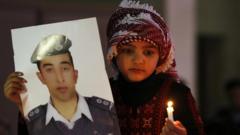Kamel Daoud's novel "Houris," which poignantly addresses Algeria's violent past during the 1990s civil war, has won the Goncourt Prize, but the author faces repercussions back home where the narrative is largely suppressed.
Algerian Author Kamel Daoud's Novel "Houris" Wins Prestigious Goncourt Prize

Algerian Author Kamel Daoud's Novel "Houris" Wins Prestigious Goncourt Prize
Kamel Daoud's harrowing tale of Algeria's civil war receives France's top literary honor while facing challenges in its native country.
Algerian author Kamel Daoud has made history by winning France's Goncourt Prize with his novel "Houris," which vividly recounts the country's brutal civil war in the 1990s that left as many as 200,000 people dead. The narrative follows the protagonist Fajr, a survivor of an Islamist attack who bears a visible scar as a reminder of past horrors. Her story, while heart-wrenching, seeks to illuminate the plight of women during Algeria's "dark decade."
The Goncourt committee praised Daoud's work for articulating the pain and struggles of that tumultuous era, highlighting the significance of literature in reconstructing memories outside of conventional historical narratives. Nonetheless, Daoud's achievement is paradoxically overshadowed in Algeria, where the book lacks a local publisher, making its distribution nearly impossible, and news of his Goncourt win has not permeated the local media landscape.
Daoud's critiques of Algeria's past have made him a controversial figure within his homeland. The country’s 2005 “reconciliation” law criminalizes discussions that may evoke "wounds of the national tragedy," which has effectively silenced discourse on the civil war. This suppression has been so severe that Daoud noted his daughter was unaware of the events due to their absence from educational curricula.
With prior experience as a journalist during the civil war, Daoud has lived through the grim reality of the conflicts, a theme that is reflected in his writing. He argues that although the Islamists lost militarily, they have triumphed politically, an observation that critiques Algeria’s current socio-political climate and the ongoing marginalization of women. His work aims to provoke thought about the sacrifices made for freedom and the need for honest confrontation with the country’s past.
Having moved to Paris in 2020, Daoud expressed that his ability to write and articulate his thoughts in "Houris" stems from the liberties he finds in France—a place he regards as a sanctuary for writers. He articulates a deep connection with his Algerian identity, acknowledging the complexities faced by Franco-Algerians. As Daoud continues to navigate his dual existence, his words remain a powerful call for Algeria to reevaluate its narrative and embrace its full history.





















